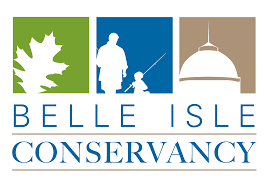FILM OVERVIEW
Only 32 miles in length, the Detroit River has provided its namesake city with a vital corridor for transportation, trade, industry and recreation for over three hundred years. But, of course, its history goes back much farther, as native people have camped along the river’s banks and harvested its bounty from time immemorial. Antoine de la Mothe Cadillac founded Detroit in 1701 as a key fur-trading outpost and the French became the first non-natives to paddle the waters. Working closely with the ‘Three Fires’ tribes (the Ojibwe, Odawa and Potawatomi), the French came to dominate the fur trade in the Midwest. However, as in many such encounters with indigenous people, the Europeans tended to get the better end of the deal, and the river, along with the settlement of Detroit, has been the site of as much violence as it has vitality. The siege of Fort Detroit was waged by the Odawa’s Chief Pontiac and led to the Proclamation of 1763, hasting the American Revolution.
Race relations have also sunk roots deeply into Detroit’s history. The Northwest Ordinance prohibited slavery north of the Ohio River, and the Detroit River—the primary crossing-point to Ontario— became an essential stop along the famous Underground Railway, allowing fugitive slaves to find a new life of freedom in Canada. ‘Midnight’ was the code word for the final leg of the Underground Railroad’s northward trek because it was easiest to slip across the river after dark. Once midnight arrived, the slaves sensed that the end of their perilous journey was near.
By the latter part of the 19th century, the river’s proximity made Detroit a leader in shipbuilding, and by the early 1900’s, a rapid process of industrialization led to enormous prosperity and wealth which was, by and large, shared by the city’s population. Henry Ford’s innovations, including mechanized production and decent wages and benefits for his workers, made Detroit one of the most important cities in the world, and during this era, no location better symbolized American might and progress.
The partnership between man and water has been inseparable to the evolution of Detroit, but it has been a relationship fraught with many faces. The waterway has paid a price for progress, and it is only in recent years that the community has begun to restore the ecosystem’s natural equilibrium. The success of these projects, many spearheaded by the Detroit River Project, include the only international wildlife refuge in North America, which is but one example of Detroit’s legendary adaptability and resilience.
The fascinating history of the Detroit River will be the focus of a 2025 two-hour production for Detroit Public Television, ‘Detroit: The City by the River.’ Emmy Award-winning director/producer Keith Famie of Visionalist Entertainment Productions will journey through time, up and down our beloved Detroit River, to uncover the richness of the past and gain a better understanding of where the river’s meandering course will take us in the future.
Executive Producers:
Keith Famie
Legacy Executive Producers:
John & Carole Kulhavi
Community Leaders:
Tom & Sue Rau






